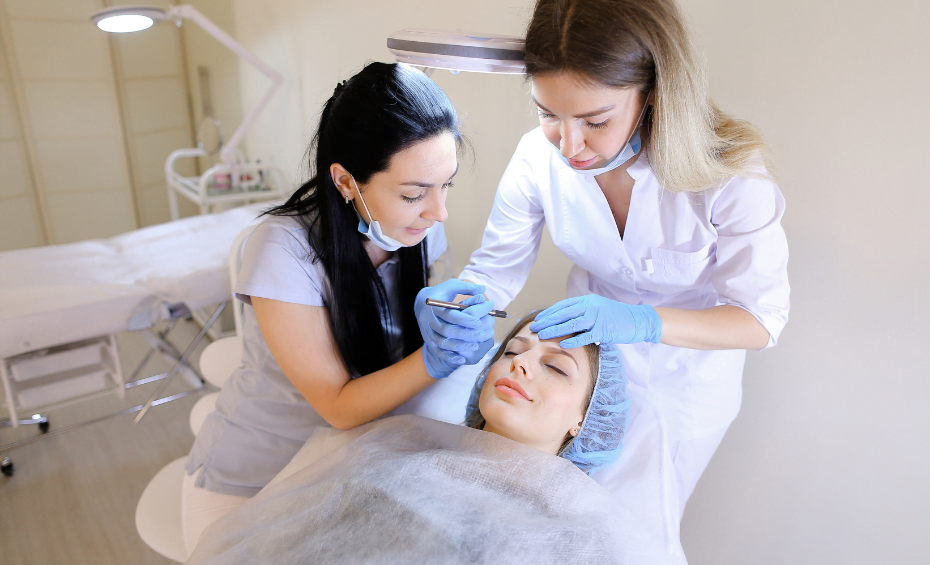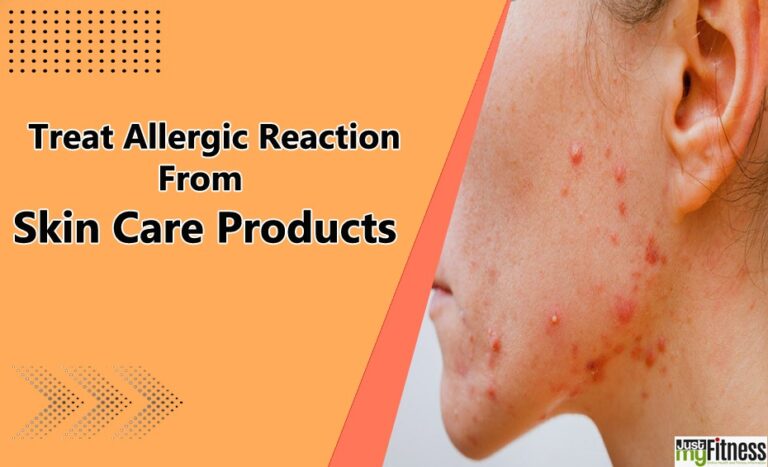Skin products and cosmetics are often utilized to maintain skin hygiene and enhance its appearance. While they are generally safe and efficient for most people, some may encounter sensitivity or allergic reactions toward specific products.
If you don’t manage them promptly, they can worsen and lead to chronic conditions like atopic dermatitis. Fortunately, you can effectively manage allergic reactions and restore the health of your skin with the right knowledge and treatment approaches. In this detailed article, we will guide you through all the necessary steps to treat skin care product allergies and maintain healthy-looking skin.
What is Skin Allergy?
Skin allergy, also known as allergic dermatitis, is a condition where the skin becomes inflamed due to an allergen that triggers an allergic reaction in the body. This can cause redness, itching, swelling, and other uncomfortable symptoms on the skin. The allergen can vary from person to person, but some common triggers include certain foods, medications, cosmetics, fragrances, plants, and metals like nickel. Skin allergies can be mild or severe and can occur in anyone, regardless of age or gender. Treatment typically involves avoiding the allergen and using topical or oral medications to manage symptoms.
Tips to Treat Skin Allergy from Products:
Skin care products cause allergic reactions in some people due to their ingredients. Here are some tips for managing this situation:
Signs and Symptoms of an Allergic Reaction:
Allergic reactions can be frightening, and identifying the symptoms is important. Common signs include hives, swelling, rashes, nausea, vomiting, stomach pain, congestion, sneezing, coughing, reduced blood pressure and anaphylactic shock. If you suspect you or someone else may have an allergic reaction, it is best to contact a medical professional immediately. It is essential to recognize the typical signs and symptoms of allergies as their severity can differ from person to person. This knowledge can aid in promptly diagnosing and treating them successfully.
Identify The Allergic Skin Care Products:
It is crucial to determine which product triggered your skin reaction correctly. Some indicators that may help identify the culprit include any recent modifications to your skincare routine and the components contained in the product. Checking the labels of all products used before the reaction can shed light on what triggered the issue. It’s worth considering other products you use, such as hair care, deodorants, laundry detergent, or soaps, to help identify the cause of the reaction. Seeking advice from a professional or doing research can be useful in this process, and it’s important to avoid using the product again and find a better alternative that suits your skin.
Stop using Skin Products and Rinse your Face:
Incorporating skincare products into your daily routine while leading a healthy lifestyle can be difficult. If you experience any adverse reactions to a product, it is essential to discontinue its use right away and wash your skin with cool water. It’s essential to check the ingredients before trying any new skin product to prevent skin damage or irritation. It’s advisable to observe any changes on your skin after using the product over time.
Visit Dermatologist if Needed:

It is recommended that you seek assistance from a healthcare professional if your skin remains inflamed and the symptoms become more severe. You can receive a diagnosis for any underlying skin conditions that may be causing your reactions by visiting a doctor or dermatologist. They may be able to recommend lifestyle modifications, medications or treatments to take to reduce discomfort and prevent a recurrence. The doctor might recommend lifestyle changes such as avoiding specific foods or physical activities that could worsen your skin allergy. They may suggest using hypoallergenic skin products, making them less likely to trigger an allergic reaction.
Take Antihistamines to Reduce Symptoms:
Allergies can cause unwanted and uncomfortable swelling and itching sensations that can ruin your day, but luckily antihistamines are an effective way to reduce those symptoms. By blocking the chemical histamine in the body, antihistamines can decrease redness, irritation and sneezing caused by allergies and leave you feeling better in no time. Even though some side effects may occur, such as fatigue or restlessness, these generally disappear once your body is accustomed to the medication, making antihistamines a great option for symptom relief.
Avoid Future Reactions by Consulting a Dermatologists:
Consulting a Dermatologist for advice is essential when using new health products or medications. Dermatologists often use a method called patch testing to determine which ingredients in skin products may be causing an allergic reaction for an individual. Using this will ensure that you are aware of any potential risks or side effects associated with the product before actually using it.
It’s better to prioritize your safety when it comes to your health since future reactions can lead to issues if you’re not aware of what you’re taking or using. Doing some simple research and consulting with an expert before taking action can ensure that any new products you try will be used most efficiently and safely possible.
Take Care of Your Skin:
Taking care of your skin is essential in maintaining a healthy lifestyle. This can range from using products with all-natural ingredients to avoiding activities that may cause skin sensitivity or irritation. Eating a balanced diet and drinking plenty of water can also help your skin stay supple, as can using sunscreen when outdoors in order to protect it from the sun’s harmful UV rays. Taking proper care of your skin is key in preventing allergic reactions and other issues caused by using certain products or being exposed to the environment.
Conclusion:
Allergic reactions to skin products and medications can be an unpleasant experience, but taking preventative measures and consulting with a healthcare professional is key in avoiding further issues. Keeping track of any symptoms you may experience when using new skincare products, visiting the doctor or dermatologist if need be, taking antihistamines to reduce discomfort and consulting with a dermatologist before taking action are all great ways to avoid any and all allergic reactions.


